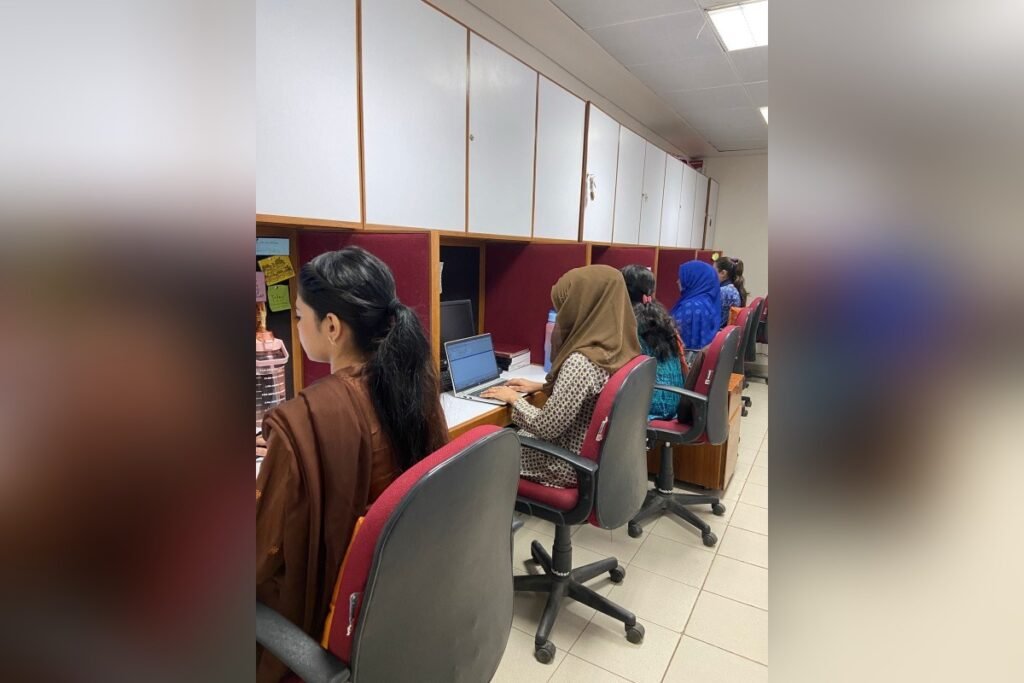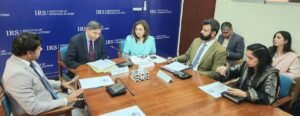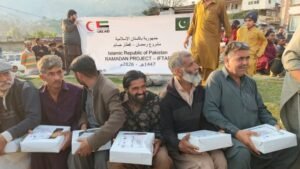
KARACHI, A new research study published in The Lancet Regional Health – Southeast Asia highlights the urgent need for a unified national cancer registry in Pakistan to improve cancer surveillance, policymaking, and resource allocation. Titled ‘Cancer Registries in Pakistan: A Scoping Review’ the study was co-authored by experts from Aga Khan University (AKU), University of Wisconsin, and Shaukat Khanum Memorial Cancer Hospital.
Pakistan faces a substantial cancer burden, with an estimated 185,748 new cancer cases and over 118,631 cancer related deaths recorded in 2022. Yet, the absence of a national cancer registry means that cancer data collection remains fragmented, inconsistent and incomplete, making it harder to plan and implement effective public health efforts.
“Cancer registries are crucial, they provide population-based data on cancer trends and treatment efficacy, and enable health authorities to monitor disease patterns, guide policymaking, and allocate resources to establish an effective national cancer control programme,” expressed Dr Zehra Fadoo, Chair of AKU’s Department of Oncology.
The research study identifies 17 cancer registries in Pakistan, with wide variations in scope and geographical coverage. Currently, only 19 of Pakistan’s 129 cities contribute data to at least one registry. Many registries face operational challenges, limited funding, and inconsistent data collection methods. The study has identified strengths and weaknesses of different registries, providing information that can be used to plan for cancer data aggregation and future research studies.
“Building a national cancer registry isn’t something one institution can do alone,” explained Sehar Salim Virani, from the Departments of Surgery at AKU and the University of Wisconsin. “It will require coordinated action, government leadership, and institutional collaboration. This paper is a first step towards that goal. By mapping what exists, we can now move towards what is needed. It’s time to turn fragmented efforts into a unified national response.”
One of the registries profiled in the study is the Aga Khan University Cancer Registry (AKU-CR), a hospital-based registry established in 2009. AKU-CR has an inbuilt international coding manual that serves as the foundation for measuring the cancer burden in Aga Khan University Hospital (AKUH) in Pakistan. The purpose and goal of AKU-CR is to collect, maintain, and disseminate the highest quality cancer data that will contribute towards cancer prevention and control—improving diagnoses, patient care, treatment, survival, quality of life and establish background for research. So far, using USA-based CNExT software, the registry has documented over 71,900 cases. At AKUH, the clinical aspects of the Cancer Registry are overseen by the AKUH Cancer Committee with trained registrars, ensuring high standards in data quality and clinical relevance.
Pakistan has a National Action Plan for Non-Communicable Diseases, control and health promotion (NAP-NCD) which includes cancer prevention and control. The Ministry of National Health Services Regulations and Coordination nominated the Pakistan Health Research Council (PHRC) as the focal point for Cancer Registry in Pakistan, and in 2020, a National Steering Committee was notified with members from all major cancer registries and data centers. Despite these efforts, challenges remain in achieving complete, consistent, and uniform data collection.
“Pakistan has long struggled with adopting national cancer registration,” noted Syed Nabeel Zafar, from the Department of Surgery and Carbone Cancer Center at the University of Wisconsin. “With the rising incidence of cancers in Pakistan, a national cancer registry is essential to be able to address this growing problem. In lieu of national a registry many institutions across Pakistan have pitched in and developed cancer registries at local or regional levels. Government buy-ins are needed to develop a national level registry. While this requires effort and resources, it is not very expensive, and would be very feasible to do in Pakistan”
A national cancer registry is vital to enhance cancer surveillance and inform public health action in Pakistan, where cancer rates continue to rise. This will require existing registries to work together and partner with stakeholders across both the public and private sectors to build a comprehensive, sustainable system that serves the entire population.







